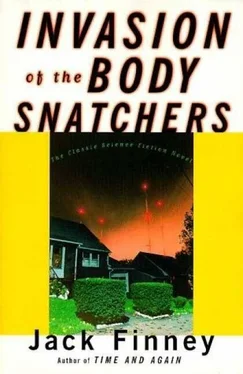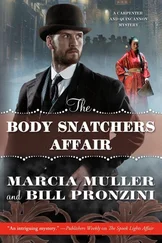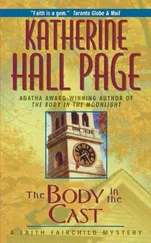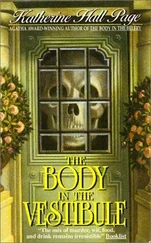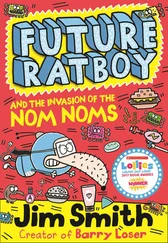Perhaps five minutes later, I saw the salesman Jansek had arrested driving down Main, alone in his car, and a few moments after that, the car with Oregon license plates.
My arm still around her, I turned to look at Becky, and she stared at me for a moment, then pursed her lips and shrugged, and I smiled a little in response. There was nothing more to do or say, and I wasn't aware of any particular emotion; certainly there was no new one, and I felt none of the old ones any more strongly. We'd simply reached a limit beyond which there was nothing more to be said or felt.
But I was finally aware – now I knew it for sure – that the entire town of Santa Mira was taken, that not a soul in it but ourselves, and possibly the Belicecs, was what he had been, or what he seemed still, to the naked eye. The men, women, and children in the street and stores below me were something else now, every last one of them. They were each our enemies, including those with the eyes, faces, gestures, and walks of old friends. There was no help for us here, except from each other, and even now the communities around us were being invaded.
We often say, "I wasn't surprised," or "I knew it would happen" – meaning that in the moment of an event's occurrence, although we'd previously given it no conscious thought, we have a feeling of inevitableness, as though we'd known for a long time that precisely this was going to happen. In the minutes we'd been sitting there by the window, all I could think of to do was wait until dark, and then try to work our way through the hills, and out of town; it was useless to try in daylight, with every hand and eye against us. I explained this to Becky, in as hopeful terms as I could, trying to look as though I believed we could succeed; and there were moments when I did feel hopeful.
And yet when I heard the slight grate of a key sliding into the lock of my reception-room door, I had the feeling I've tried to describe. I wasn't surprised; it seemed to me, then, that I'd known all along what would happen, and I even had time to realize that whoever it was had simply gotten the building's master-key from the janitor.
But when the door opened, and I saw the first of the four people who walked into the room, I scrambled to my feet, my heart suddenly elated and pounding. Grinning with wild new hope and excitement, my hand moving out to shake his, I stepped quickly forward, and my voice came out in a harsh, loud whisper. "Mannie!" I said, in a kind of fierce exultation, and I grabbed his hand and shook it.
He responded, though with less vigour than I expected, his hand almost limp in mine, as though accepting but not fully returning my greeting. Then, staring at his face, I knew. It's hard to say how I knew – possibly the eyes lacked a little lustre; maybe the muscles of the face had lost just a hint of their usual tension and alertness; and maybe not – but I knew.
Mannie, seeing in my face what was going on in my mind, nodded his head slowly and, as though I'd spoken aloud, said, "Yeah, Miles. And for a long time. Just before the night you phoned me."
I turned to see who else had come into the room, glancing at each face, then I walked back to put my arm around Becky's shoulder, and face them.
One of the men – they stood there by the door – was small, stout, and bald; I'd never seen him before. Another was Carl Meeker, an accountant in town, a big, black-haired, pleasant-faced man in his middle thirties. The fourth was Budlong, who smiled at us now, as friendly and nice as he'd been before.
We stood by the windows, Becky and I, and Mannie motioned at the davenport and said, "Sit down," his voice gentle. We shook our heads, and he repeated it. "Sit down," he urged. "Please, Becky; you're tired, worn out. Go ahead; sit down." But Becky pressed herself closer to me, and I tightened my arm around her shoulders and shook my head again.
"All right." Mannie pushed the sheets on the davenport aside and sat down. Carl Meeker walked in and sat beside him, Budlong took a chair across the room from them, and the little man I didn't know sat nearer the outer door.
"I wish you'd relax, and take it easy," Mannie said, brows lifting, smiling at us in frank concern for our comfort. "We're not going to hurt you, and once you understand what we… have to do" – he shrugged – "I think maybe you'll accept it, and wonder what all the fuss was about." He sat looking at us, then when we didn't reply or move, he sat back on the davenport. "Well, first of all, it doesn't hurt; you'll feel nothing. Becky, I promise you that." He sat nibbling at his lip for a moment, getting what he had to say in order, then he looked up at us again. "And when you wake up, you'll feel just exactly the same. You'll be the same, in every thought, memory, habit, and mannerism, right down to the last little atom of your bodies. There's no difference. None. You are just the same." He said it forcefully, convincingly, but for the least fraction of an instant, a hint of disbelief in his own words flickered in his eyes.
"Why bother, then?" I said casually. I had no hope in argument, but I had to say something, it seemed to me. "Just let us alone, then. We'll leave town, and we won't come back."
"Well – " Mannie started to answer, then stopped, and looked at Budlong across the room. "Maybe you ought to explain that, Bud."
"All right." Looking pleased, Budlong settled back in his chair, the professor anticipating the joy of teaching, just as he'd done all his life, undoubtedly. And I found myself wondering if Mannie wasn't right, that actually there was no change, and you were still just the way you always had been.
"You saw what you saw, and you know what you know," Budlong began. "You've seen the… pods, for lack of another name; seen them change and prepare themselves; twice you've seen the process almost completed. But why force you through the process, when there is, as we say, no final difference at all?" Again, as they had in his home, the finger tips of each hand found those of the other, an academic, professorial gesture, and he smiled at us, a youthful, pleasant-faced man. "It's a good question, but there is an answer, and a simple one. As you surmised, the pods are, in a sense, seed pods, though not in the sense that we know seeds. But in any case, they are living matter, capable, just as are seeds, of enormous and complex growth and development. And they did drift through space, the original ones, anyway, over enormous distances, and through millenniums of time, just as I told you. Though of course" – he smiled in polite apology – "I tried to phrase it in a way to cast doubt over the notion. They live, however; they arrived on this planet by pure chance, but having arrived, they have a function to perform, as natural to them as yours are to you. And that's why you must go through the change; the pods must fulfil their function, their reason for being."
"And what's their function?" I said sarcastically.
Budlong shrugged. "The function of all life, everywhere – to survive." For a moment he stared at me. "Life exists throughout the universe, Doctor Bennell; most scientists know that, and willingly admit it; it has to be true, though we've never before encountered it. But it's there, infinite distances away, in every conceivable and inconceivable form, since it exists under enormously varied conditions. Consider, Doctor, that there are planets and life incalculably older than ours; what happens when an ancient planet finally dies? The life form on it must reckon with and prepare for that fact – to survive."
Budlong sat forward in his chair, staring at me, fascinated by what he was saying. "A planet dies," he repeated, "slowly and over immeasurable ages. The life form on it – slowly and over immeasurable ages – must prepare. Prepare for what? For leaving the planet. To arrive where? And when? There is no answer, but one; which they achieved. It is universal adaptability to any and all other life forms, under any and all other conditions they might possibly encounter ."
Читать дальше
